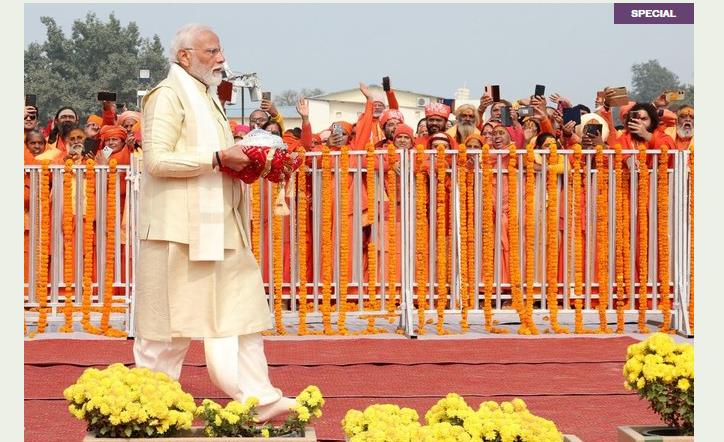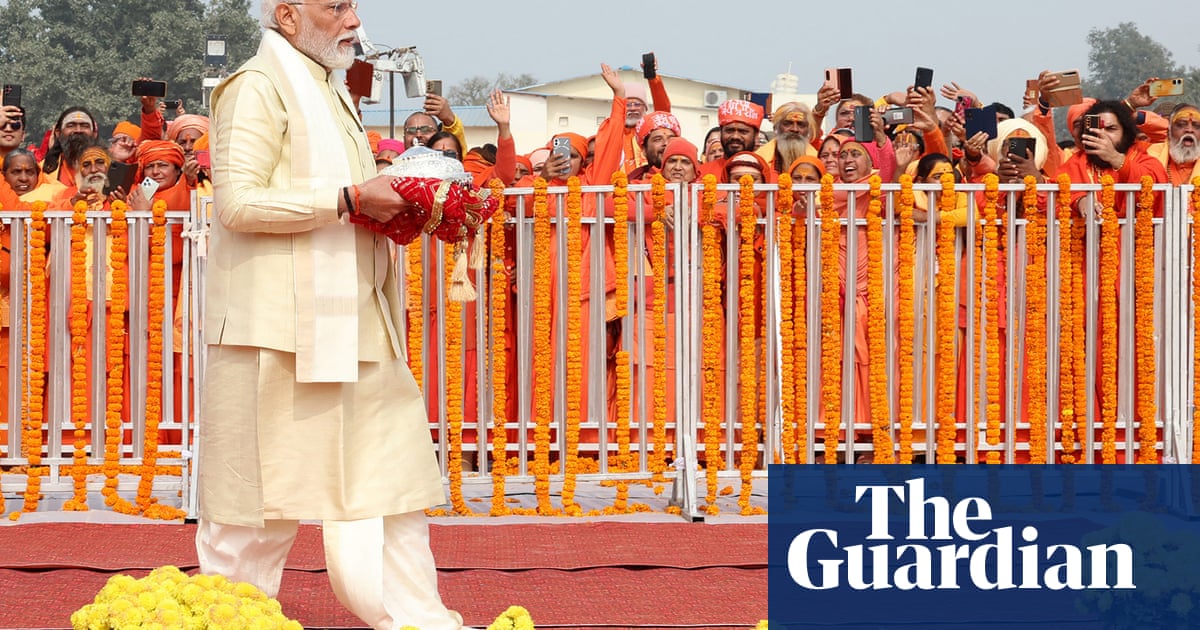
Indian PM Narendra Modi on Wednesday laid the foundation stone for a Hindu temple in the northern city of Ayodhya on the land where the historic Babri Masjid once stood. — Courtesy photo
Indian PM Narendra Modi on Wednesday laid the foundation stone for a Hindu temple in the northern city of Ayodhya on the land where the historic Babri Masjid once stood. — Courtesy photo
NEW DELHI — Indian Prime Minister Narendra Modi on Wednesday laid the foundation stone for a Hindu temple in the northern city of Ayodhya on the land where the historic Babri Masjid once stood.
The medieval mosque was razed to the ground on Dec. 6, 1992 by mobs mobilized by the Rashtriya Swayamsevak Sangh, the ideological fountainhead of the right-wing forces in India, including the ruling Bharatiya Janata Party of PM Modi.
The destruction of the mosque by Hindu extremists sparked some of the worst violence seen in India since independence, with more than 2,000 people, mostly Muslims, killed across the country.
Modi laid a 40 kilogram (88 pound) silver brick in a ceremony attended by 175 dignitaries, including 135 religious devotees in Ayodhya, amid a surge in coronavirus cases in India with a number of priests who were scheduled to participate in the ceremony testing positive before the event.
After years of legal battles, India"s Supreme Court in November 2019 granted Hindu groups permission to build the Ram Temple at the centuries-old Ayodhya holy site in a judgment strongly criticized by leading legal luminaries as it, they claim, sought to appease the sentiments of the majority community disregarding the legal nuances of the case.
On the eve of the foundation ceremony, All India Muslim Personal Law Board (AIMPLB), a leading legal body representing the Muslims side in prolonged court battles, once again condemned the top court"s ruling.
“Babri Masjid was and will always be a Masjid. Hagia Sophia is a great example for us. Usurpation of the land by an unjust, oppressive, shameful and majority appeasing judgment can"t change its status. No need to be heartbroken. Situations don"t last forever,” AIMPLB said in a tweet.
Meanwhile, speaking soon after he laid the foundation stone, Modi said that the temple would be a symbol of unity.
"Centuries of waiting is over today. Some people will not be able to believe that they are seeing this during their lifetime," he said, removing his coronavirus face mask to speak.
"Ram Temple will be a modern signifier of our ancient culture, it will be an example of our patriotic fervor, it will be a symbol of the strength of will of our citizens," he said. "This temple will unify the country."
Wednesday"s ground laying ceremony went ahead as India"s coronavirus cases spiral, with around 50,000 new infections recorded every day for the past five days. Before the ceremony began, a live-streamed video showed that social distancing measures were not being practiced, although those measures were in place during the ceremony, according to a CNN report.
India has recorded the third-highest number of coronavirus cases worldwide, according to data from Johns Hopkins University, and several high profile politicians in Modi"s Bharatiya Janata Party (BJP) have tested positive for the virus, including Interior Minister Amit Shah, who was set to appear on stage on Wednesday with the prime minister. — Agencies












